
The Mysterious Cookie Thief, Sesame Street episode 4033 (Image credit: Sesame Street, YouTube)
I grew up watching public television. In the 1990s, it was less common for poor and working-class families, like my own, to have access to cable networks. So, while many of my classmates grew up watching Nickelodeon and the Disney Channel, I had PBS.
Honestly, it wasn’t exactly the “cool” programming to watch at the time. I never admitted to my friends that I had to rush home to catch the latest episode of “Arthur.” But years later, I found myself sitting around the lunch table singing, “having fun isn’t hard when you’ve got a library card” with a group of peers. It turned out we’d all secretly been “Arthur” fans for years.
I was a first-generation kid who was raised by a single mom. Although screen time was limited in my household, I’d always loved watching the early morning PBS programming, especially “Sesame Street.”
Some of my earliest memories are of Big Bird, Cookie Monster, Elmo, Oscar the Grouch, Ernie and Bert. Being a child, the personalities that the puppeteers brought to life felt just as real as any of the people I met in person. I recall “Sesame Street” teaching me concepts of basic literacy, showcasing words and meanings. Each day was “brought to you” by a letter of the day – and the Muppets shared examples of words that started with that letter and how to use them in a sentence.
When I was six years old, I was diagnosed with bone cancer. Overnight, my life became consumed by hospital visits and doctor appointments. Amid the chaos of medical tests and chemotherapy, PBS became a lifeline. Their programming offered a sense of normalcy and escape. On days when I was too physically ill to attend school, I would tune in to “The Magic School Bus.” At 4 p.m. every day, Ms. Frizzle whisked me away to an unexplored territory– sometimes it was the inside of the human body, other days we boarded a shuttle to space. The show reminded me that learning wasn’t confined to a classroom.

Michelle visits the Griffin Museum of Science and Industry in Chicago, 1995 (Image credit: Michelle Zacarias)
“Mr. Roger’s Neighborhood” was also a household favorite. When I was a kid, I didn’t understand the profound impact he’d had on so many decades of children or his role as a fierce advocate for public broadcast television.
In 1969, long before I was born, Rogers appeared before the Senate Commerce Subcommittee on Communications to defend the $20 million in federal funding proposed for the newly-formed Corporation for Public Broadcasting. That funding was at risk of being cut in half. Rogers delivered a heartfelt, unflinching case for why children’s public television was worth investing in.
If you grew up watching “Mister Rogers’ Neighborhood,” that probably won’t come as a surprise; compassion and empathy were at the core of his show. But as a child, I couldn’t grasp the larger implications of what it meant for a soft-spoken man in a cardigan to stand before a panel of middle-aged senators and speak on the importance of discussing feelings and managing anger. Frankly, it was the type of social and emotional education our current political administration could use more of.
During one particular part of his speech, Rogers says to then-Senator John Pastore, “This is what I give. I give an expression of care every day to each child, to help him realize that he is unique. I end the program by saying, ‘You've made this day a special day, by just your being you. There's no person in the whole world like you, and I like you, just the way you are.’"
Even 22 years after his passing, Mr. Rogers’ words at the Senate hearing still bring me to tears.
Now, as the Trump administration aims to slash public subsidies to PBS, I find myself reflecting on the influence PBS has had on my life. Over the course of a year, 58 percent of U.S. television households—more than 130 million people—tune in to PBS member stations. PBS KIDS draws an average of 364 million video streams each month across digital platforms, reaching approximately 13 million unique users. Some might be surprised to learn that 60 percent of PBS’s audience resides in rural areas, and nearly two-thirds identify as Republican or Independent. In an increasingly polarized media landscape, PBS has remained one of the few enduring examples of broadly trusted, nonpartisan educational television.
For working class and lower-income families, PBS showed us a world they did not have access to and quietly guided us through some of the most important stages of growing up. As a child of immigrants, PBS was one of my first windows into American culture. It showed me that in the melting pot of the United States there was a variety of cultural backgrounds both similar and different to my own.
Shows like “Barney” taught me the importance of cleaning up after myself and personal hygiene with songs like “clean up, clean up.” Molly from “The Big Comfy Couch” encouraged me to stretch and move my body. If you were lucky enough to have watched “Wishbone”during one of the two seasons it ran, you got to experience firsthand the magic of storytelling. I fully credit shows like “Wishbone,” "Arthur" and “Reading Rainbow” for encouraging my love of reading, especially as someone who went on to become a professional writer.

Arthur and friends head to the library in the episode "Arthur's Almost Live Not Real Music Festival." (Image credit: Arthur Wiki)
PBS children's shows met us where we were at–regardless of our race, gender, disability, or socioeconomic status. The programming nurtured emotional intelligence and creativity, trusting that children could handle life’s daily struggles and lifelong lessons. And it did all this free of commercials or consumerism. PBS was the consistently reliable public education network for “viewers like you.”
To protect PBS is to safeguard one of the few remaining spaces where our children can learn that equity is not just a concept, but a practice. It means embodying the kindness and justice we aspire to see in the world—and committing to those actions consistently until they are woven into the very fabric of our society. I truly cannot imagine a world so devoid of compassion and imagination.
To learn more about how you can protect PBS check out protectmypublicmedia.org

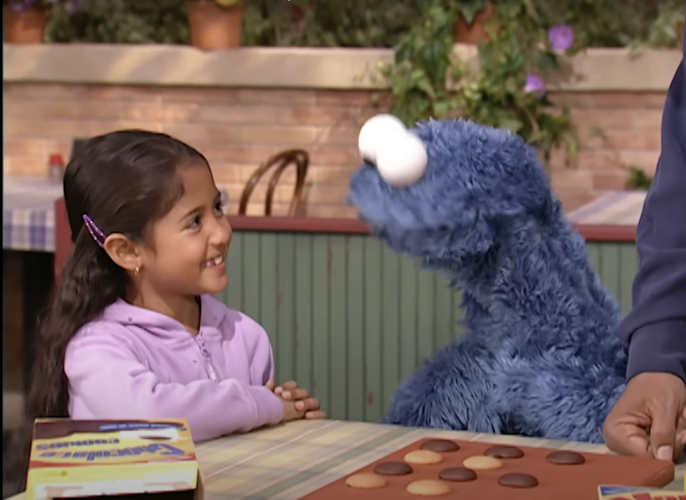
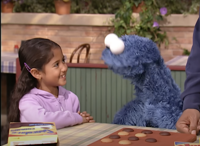

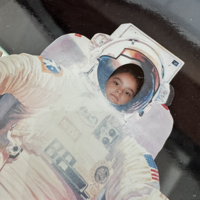

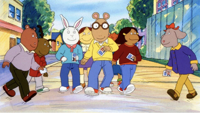

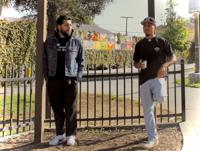

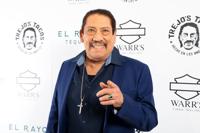

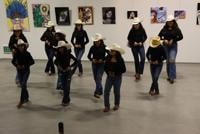


(0) comments
Welcome to the discussion.
Log In
Keep it Clean. Please avoid obscene, vulgar, lewd, racist or sexually-oriented language.
PLEASE TURN OFF YOUR CAPS LOCK.
Don't Threaten. Threats of harming another person will not be tolerated.
Be Truthful. Don't knowingly lie about anyone or anything.
Be Nice. No racism, sexism or any sort of -ism that is degrading to another person.
Be Proactive. Use the 'Report' link on each comment to let us know of abusive posts.
Share with Us. We'd love to hear eyewitness accounts, the history behind an article.